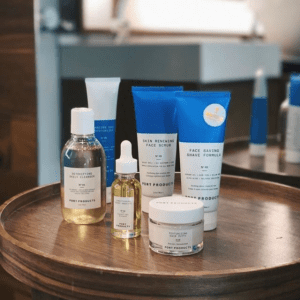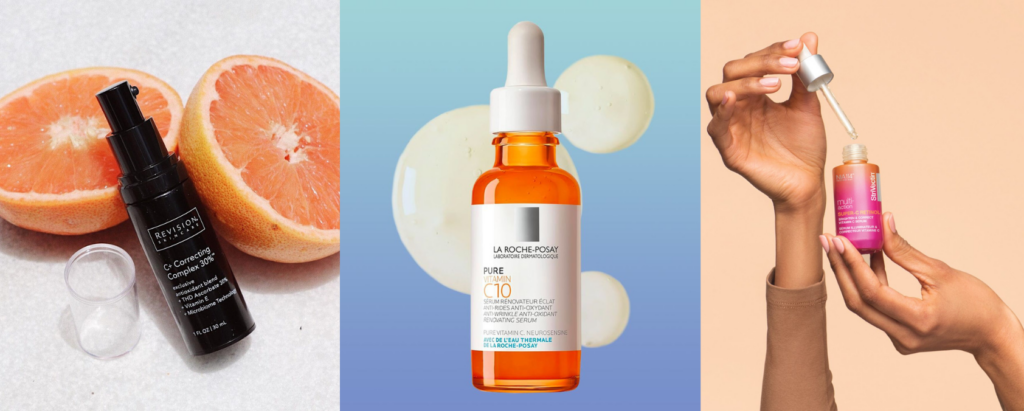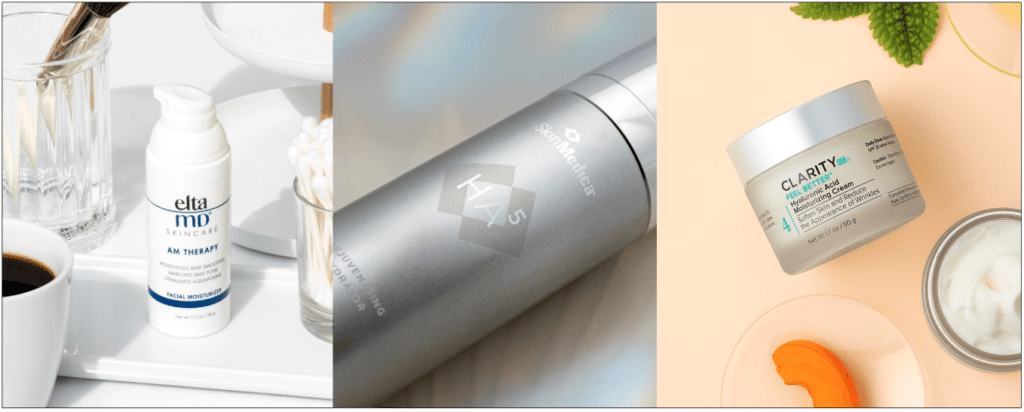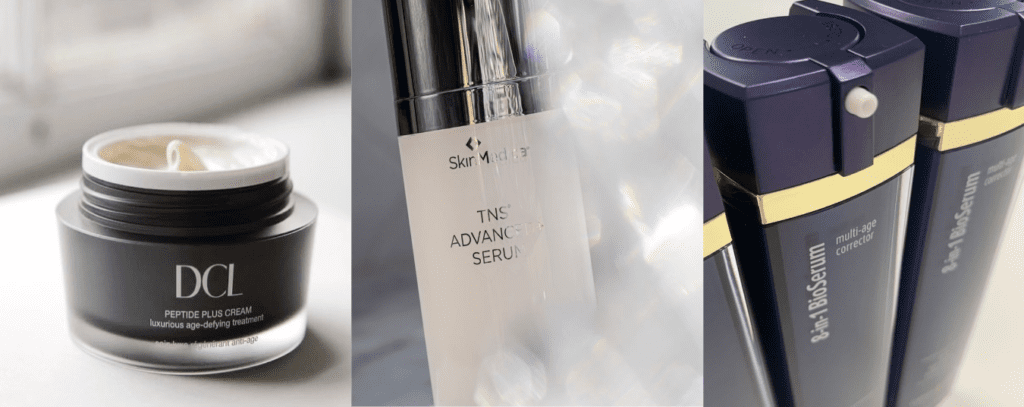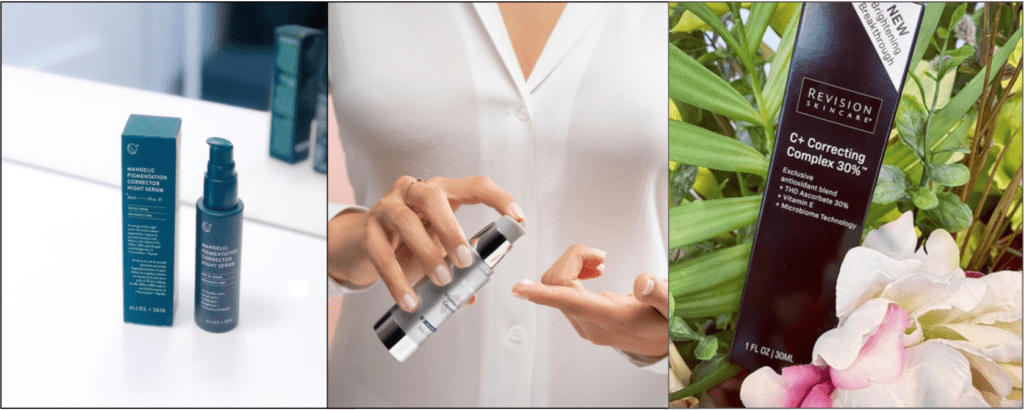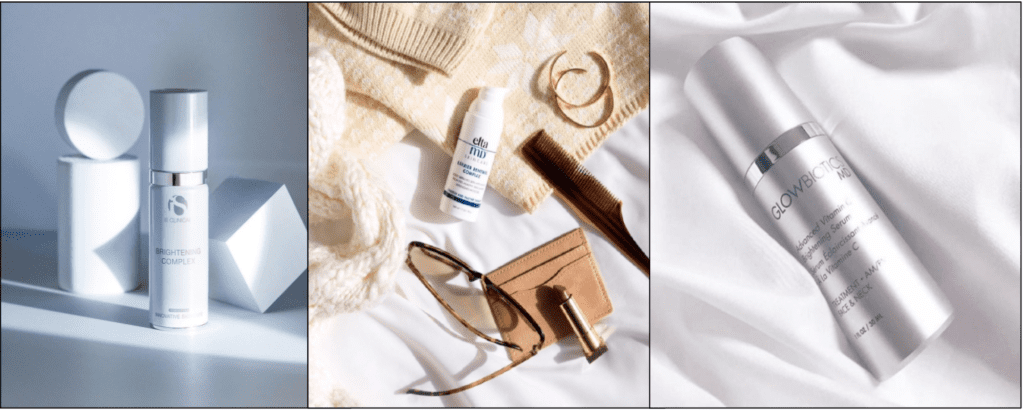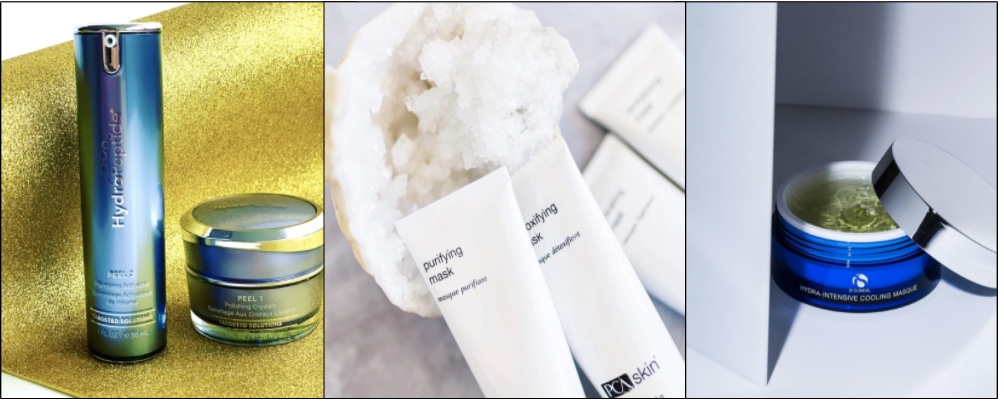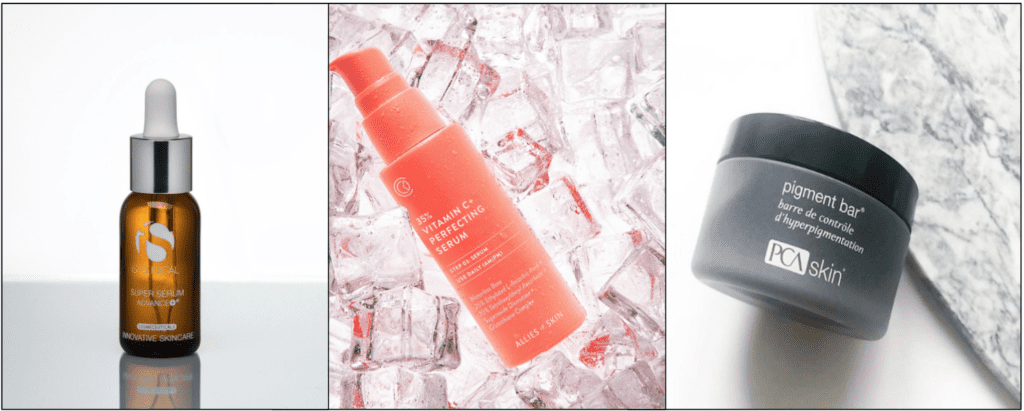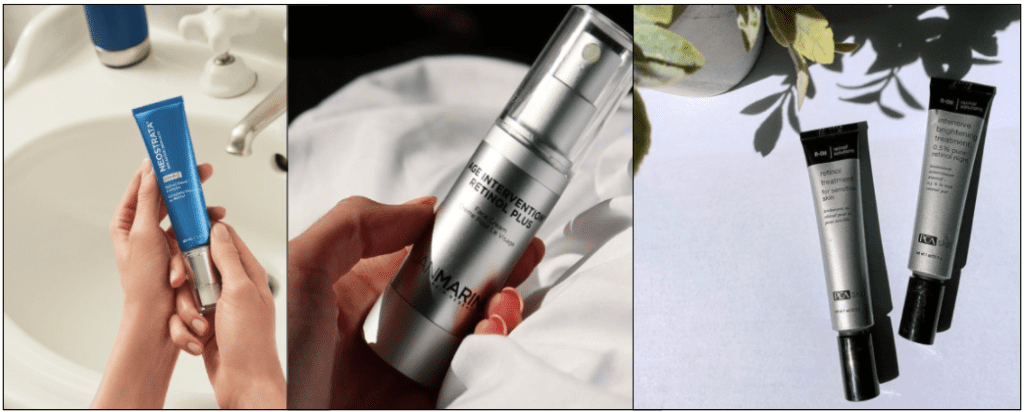If you read back on some of our recent blogs, you’ll probably see us talk about Vitamin C a lot. We talk about it as an ingredient you should always use in your skincare routine, especially if you’re looking to brighten or even your skin tone. You also probably see others talk about Vitamin C as their “miracle” ingredient in skincare, but what does Vitamin C truly do for your skin?
What is Vitamin C?
First off, Vitamin C is a water-soluble antioxidant known to neutralize free radicals. By fighting off these free radicals from the sun and other sources, Vitamin C saves your skin from UV damage and air pollution, keeping it healthy and clear. Just like you prioritize getting Vitamin C from the fruit you eat everyday, it’s important that your skin gets those antioxidants as well. Antioxidants help the skin restore its natural regeneration processes, including helping your skin repair damaged cells.
Benefits of Vitamin C:
Anti-Aging: Due to the fact that Vitamin C protects your skin from free radicals and sun damage, it helps to prevent fine lines and wrinkles from forming due to UV ray damage. With regular use of Vitamin C paired with a daily sunscreen, you can prevent future aging of the skin. Vitamin C also helps to stimulate collagen production, which is essential in keeping your skin looking youthful and smooth.
Brightening: Vitamin C is known to inhibit the production of melanin in the skin, which is helpful in dealing with hyperpigmentation and dark spots. This also helps to even out skin tone and improve the texture and radiance of the skin. Not only does Vitamin C help to fade existing hyperpigmentation, it can help to prevent future spots from appearing with regular use.
Plumping and Firming: Vitamin C is highly acidic, meaning it causes the skin to feel the need to heal itself when applied to this skin. Like we mentioned above, this stimulates the natural skin regeneration processes, like collagen and elastin production. Collagen and elastin are naturally-occurring proteins in the skin that help to keep the skin firm, plump and wrinkle-free.
Where can I find Vitamin C in skincare?
The most common way to add Vitamin C into your skincare routine is through a serum. You’ll usually want to apply Vitamin C serum as part of your morning routine in order to get all the benefits of free radical protection that Vitamin C provides. The SkinMedica Vitamin C+E Complex has Vitamins C and E released slowly throughout the day to protect the skin from the sun, improve skin tone and texture and reveal a more radiant glow. You’ll find 30% Vitamin C in the Revision Skincare Vitamin C Lotion, a daily antioxidant lotion with squalane and other antioxidants to give you smoother and brighter skin while also keeping it hydrated and protected. If you suffer from dry skin, the La Roche Posay Redermic C Vitamin C Cream for dry skin is formulated with Vitamin C, hyaluronic acid, and other ingredients to visibly plump and hydrate skin while giving you all the benefits of Vitamin C.
If you’re looking for another way to add Vitamin C into your routine, try Vivier’s Vitamin C Scrub, an exfoliating face and body scrub that works to physically exfoliate the skin while brightening and evening out your skin tone. Obagi’s C Exfoliating Day Lotion is also a great option, as it’s a moisturizer with Vitamin C and glycolic acid to reveal a brighter and healthier complexion.
No matter how you decide to include Vitamin C in your routine, remember not to mix it with other products containing retinol or high concentrations of AHAs or BHAs, as this can cause the skin to dry out and become irritated.






